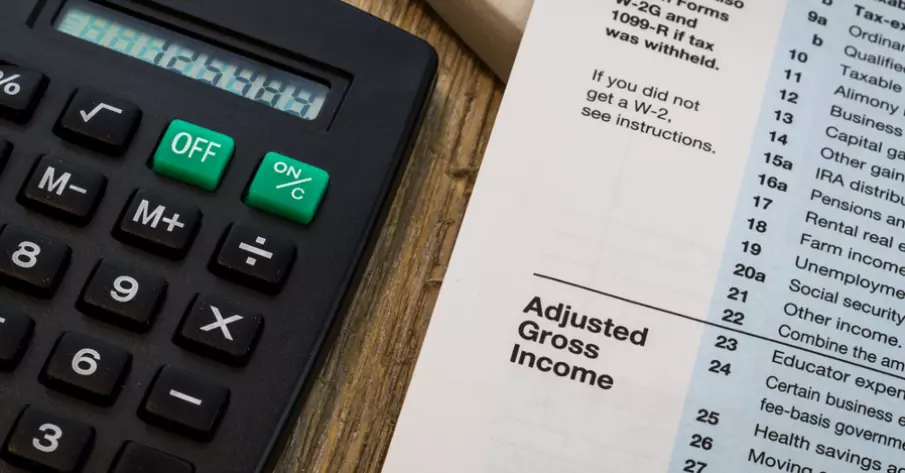Spring Cleaning Your Finances: 5 Tips for Creating a New Budget
A budget is your key to creating healthy financial choices, and spring is the perfect time to create a new one. Whether you’re brand new to budgeting or refreshing your existing budget to meet new challenges, spending a few hours budgeting in the spring will put you in a better financial place for the remaining months. These five tips will help you spring clean your finances and start the year with your finances in the best possible order.

Source: mimi-TOKYO/Shutterstock.com
1. Assess your financial situation.
Start by gathering your most critical financial information, including tax returns, bank statements, and bills such as credit cards and internet service. Luckily, in the spring, most people in the U.S. have just filed their taxes and have these documents close at hand. With these documents, your goal is to determine:
- Your monthly income
- Your average monthly expenses
- Any known upcoming expenses like weddings, vacations, or medical procedures
- Your currently available resources, including cash, retirement accounts, and investments
The more information you have about your starting point, the more effectively you’ll be able to plan where you want to go next.
2. Set financial goals for the coming year.
We’ve all got things we want to achieve, and creating a budget is a huge part of accomplishing these goals. Once you’ve got a good picture of your finances, it’s time to start looking at your goals, which might include any of the following:
- Reducing expenses overall or in targeted areas such as food
- Creating an emergency fund with three to six months of expenses
- Short-term savings for purchases, vacations, or other expenses
- Long-term savings for retirement, home buying, or education
- Starting a business
- Paying off outstanding debts
Each of these can require adjusting your current spending and saving habits, so it’s critical to pinpoint which of your goals are the highest priority. You’ll also want to take some time to break your goals down into specific steps, which helps put you on an achievable path toward concrete improvements.
3. Decide which budgeting method you want to use.
You’ve got several different options for budgeting methods, with some of the most common including:
- Percentage Budgeting: This common method slices your budget into broad categories — usually needs, wants, and savings. The 50-30-20 method, with 50% of your budget for needs, 30% for wants, and 20% for savings, is popular. However, some people find a percentage budget too loose and easy to overspend.
- Zero-Based Budgeting: A zero-based budget follows the philosophy of “giving every dollar a job.” That means tracking your income and allocating specific amounts of money not just for big expenses and savings, but for everyday expenditures like gas or entertainment.
- Automated Budgeting: You can also experiment with the automated budgeting tools provided by financial management apps, which create a financial plan for you from the information you provide. While you’ll probably want to tweak these to your individual needs, they often make an excellent starting point for thinking about where your money goes.
- Pay Yourself First: This budgeting style prioritizes saving by automatically diverting a chunk of each paycheck into your savings. Many people automatically do this through their 401k, but supplementing through other types of savings accounts can multiply your ability to grow your wealth.
There’s no one-size solution, so if you’ve been having trouble sticking to one type of budget, it might be time to try a different option. The important thing is to find something that makes sense for your financial needs.
4. Track and adjust your budget as needed.
Regular check-ins will help you stay on target with your budget. One common way is to quickly review your budget and expenditures every week. Budgeting software and apps can simplify this process a lot, so it’s a good idea to try out some different tools and find one that makes the experience smooth for you.

Source: Rabbitti/Shutterstock.com
The idea is to make budgeting a part of your lifestyle, not a one-time task. Frequently checking in on your budget makes it more normal and less scary, so you don’t get that “afraid to look” feeling that sometimes comes after a big expense or spending spree. When there’s an unexpected complication, you face it head-on and decide how to respond.
On that note, regular budget reviews also help remind you that your budget is a living document. As the year goes on, your situation will change — often in small ways, but sometimes in big ones. When that happens, you should be ready to adjust your budget to keep your most important goals on track.
5. Think about ways to stay motivated and overcome challenges.
There’s no doubt that sticking to a budget can be tough. Life throws all kinds of things at you that can disrupt even the most carefully prepared budgets. Big changes like losing a job or experiencing a medical emergency are among the scariest, but even small things like the temptation to overspend often add up to a disrupted plan.
When your budget hits a bump in the road, remember these key strategies:
- Prioritize: Know which budget items are your bare-bones essentials, your important goals, and your nice-to-haves so you can cut back as needed.
- Extra Income: If you have skills or connections that you can use to generate income on the side, it can provide a bridge through tough times.
- Shop Around: For certain expenses, such as internet service, you might be able to negotiate a more affordable rate by changing providers.
- Communicate: You may be able to get payment arrangements with utilities or creditors that will allow you to pay when your finances stabilize.
- Accountability Partners: If you’re struggling with temptations and overspending, try asking a trusted friend or family member to help you stay accountable to your budget.
A Fresh Financial Start
Now is the time to get yourself on a firm financial footing for the upcoming year. Your budget can be one of your most useful tools in building the lifestyle you’re looking for. If you start now, you can harvest rewards as the year goes on.
More to Read:
Previous Posts:





